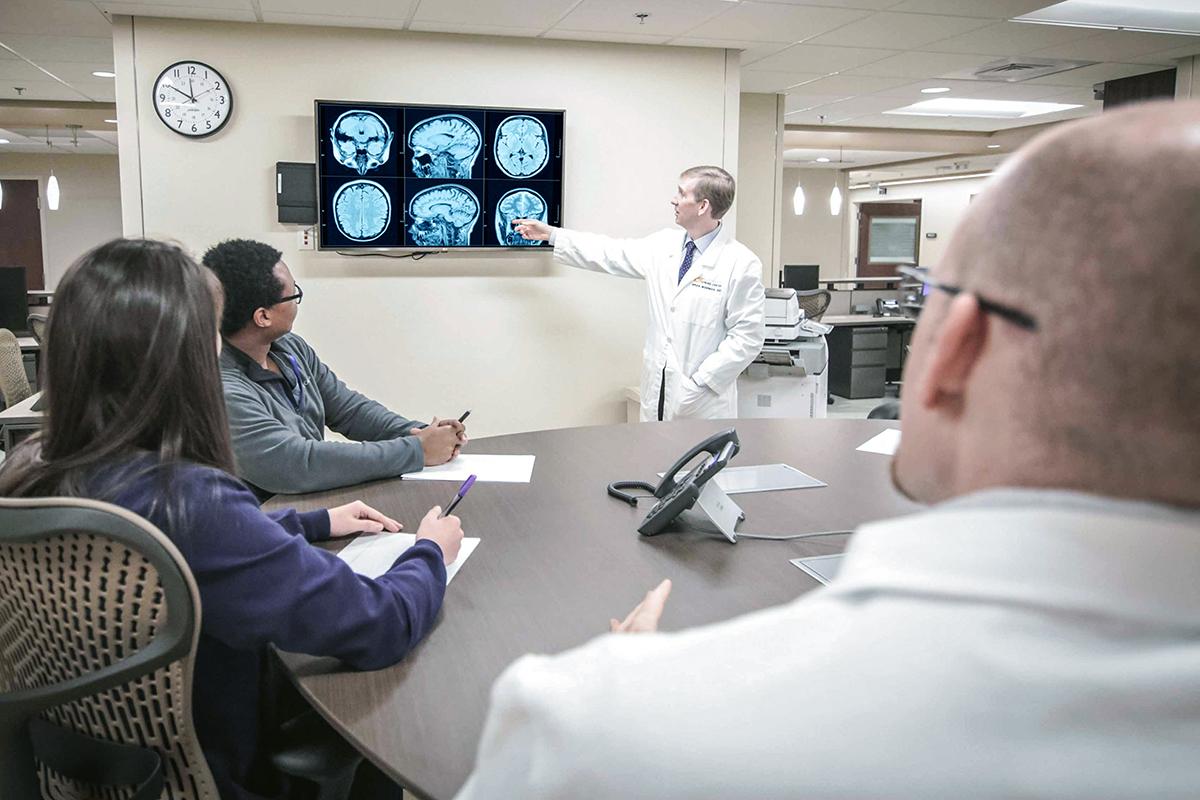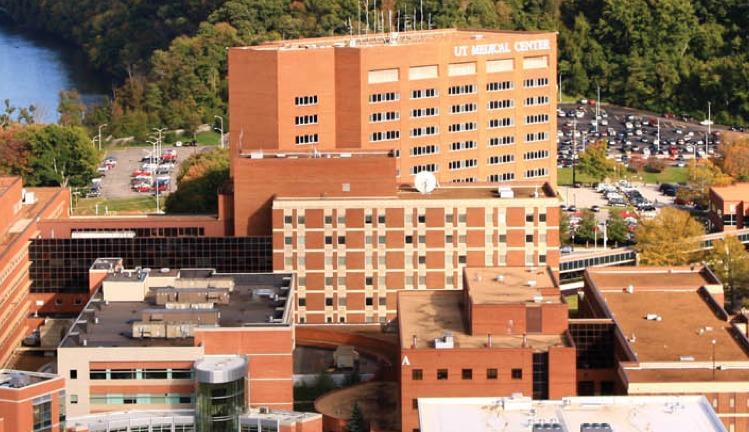How is an academic medical center different from a regular hospital?
Academic medical centers differ from other healthcare settings because they provide both routine and highly specialized healthcare services in an environment dedicated to patients. Here at UT Medical Center, we represent a unique blend of academics and patient care. Physicians, dentists, researchers and other medical professionals are on-site to provide highly specialized expertise to patients, to develop excellent physicians and healthcare providers for the future, to continue the delivery of excellent care to our community, to carry out research activities that bring the latest diagnostic and treatment methods to the patients we serve, and extend new knowledge and leadership in the world of medicine. Simply put, everything we do revolves around improving the care of our patients.
Why is it important to have comprehensive healthcare services at one location?
As an academic medical center, we offer a wide range of healthcare expertise located in one hospital campus, allowing a high level of interaction between these experts to provide efficient and effective care to our patients. Our Centers of Excellence include:
What kind of medical research is being conducted?
As an academic medical center, The University of Tennessee Medical Center is actively involved in important research, designed to benefit patients here and elsewhere in the world.
We research:
- New methods for diagnosing cancer at an early stage with specialized imaging techniques
- New ways to treat cancer with advanced drug therapy and the latest surgical techniques
- Improved methods to treat diseases of the blood vessels
- New drug therapy for high blood pressure
- Advanced methods for diagnosing and treating Alzheimer’s disease
- Treatments for improving outcomes from brain injury due to major trauma
- New techniques to decrease complications from coronary stent placement
- And much more
Recently, we have conducted research studies on chronic bronchitis and emphysema, outpatient surgery, high blood pressure medications and dyspepsia treatment.
It’s one of the benefits that are unique to an academic medical center, where doctors are engaged in significant healthcare research just down the hall from doctors who are treating our patients.
What does it mean when we say our doctors are “board-certified?”
At UT Medical Center we have board-certified doctors in every major healthcare specialty available day and night. To be board-certified, our doctors must undergo three to seven years of training in a specialty and pass rigid examination by The American Board of Medical Specialties (ABMS), a non-profit physician-led umbrella organization for 24 of the 26 approved medical specialty boards in the United States. The ABMS is one of three leading entities overseeing physician certification in the United States, setting educational and professional standards for the evaluation and certification of physician specialists.
Why does an academic medical center have such high standards?
An academic medical center must meet all of the standards required of any hospital in this country. Additionally, our physicians and the hospital must meet standards set by the Accreditation Council on Graduate Medical Education to ensure medical training occurs in a setting where the quality of patient care is excellent. Initiatives such as the Pulmonary Disease Medicine Fellowship and Medical Simulation Center are great examples of blending the UT Medical Center clinical setting with the university’s goal of academic excellence.
Why is our emphasis on medical education so important to our patients?
Through a unique partnership, The University of Tennessee Medical Center and the UT Graduate School of Medicine educate healthcare professionals who take advanced skills developed here to practices, hospitals and research labs across town as well as around the world. They educate new medical professionals while carrying out their own clinical practice and conducting research to improve the health care of Tennesseans. Statewide, the University of Tennessee has provided more than 12,000 medical students, physicians and dentists with the education and experience to make them skilled and compassionate healthcare providers. During the last 25 years, The University of Tennessee Medical Center has prepared many of the physicians who practice medicine in the East Tennessee region – truly a great asset to our community in ensuring ongoing quality in patient care.

